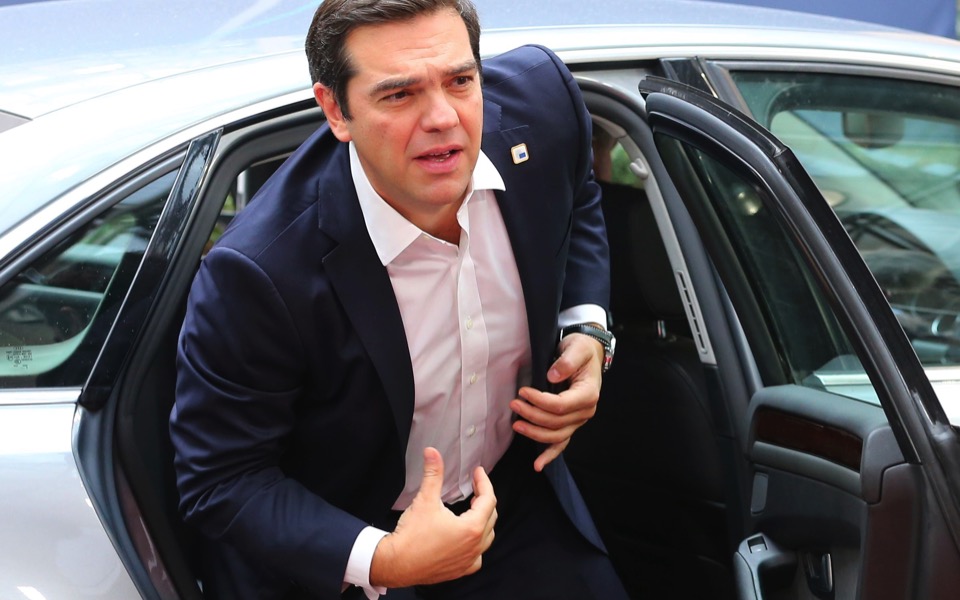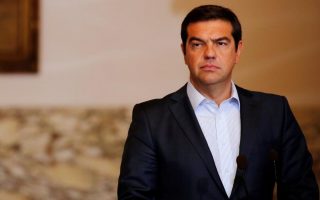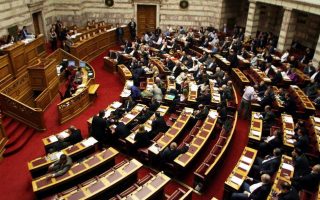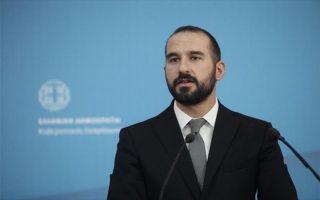Tsipras to propose to EU leaders that IMF be excluded or remain as technical adviser

Prime Minister Alexis Tsipras is to suggest to European counterparts this week that the International Monetary Fund should be left out of the Greek program, sources have told Kathimerini.
Tsipras is expected to sound out French President Francois Hollande, who he is due to hold talks with Wednesday, and German Chancellor Angela Merkel, with whom he will have a working lunch on Friday, about the idea of the Fund no longer having a role in Greece’s bailout. If an agreement cannot be reached on this proposal, Tsipras will put forward the possibility of the IMF retaining just a technical role in the program.
Athens believes that the political cost of the Fund remaining on board has become too high after the latest spat between the government and the Washington-based organization, which flared up as the institutions returned to the Greek capital for further talks aimed at completing the bailout review.
The talks resumed under a cloud after the IMF’s European director Poul Thomsen and head of research Maurice Obstfeld published a blog post on Monday night in which they denied that the Fund was responsible for asking Greece to adopt more austerity measures and claimed that the country’s pensions and tax benefits are still too generous.
Finance Minister Euclid Tsakalotos confronted the IMF mission chief Delia Velculescu over the blog post when talks between the Greek government and the institutions resumed in Athens Tuesday. Velculescu is said to have assured the Greek minister that the IMF did not want to make negotiations harder but simply to express its view.
A little earlier, Tsakalotos had publicly countered the claims made by the IMF officials in their article. “In effect [the Fund] is arguing for Greek pensioners and poorer wage earners to make further economies, while it economizes on the truth,” he told The Guardian.
“Greek expenditure on both pensions and other subsidies is about 70 percent of the EU average and 52 percent of that of Germany. Is it likely when around 45 percent of pensioners receive monthly payments below the poverty line of 665 euros, and almost 4 million people, that is more than a third of the population, have been classed as being at risk of poverty or social exclusion, that Greece’s main problem is that pensions and tax credit allowances are too generous?” he added.
Tsakalotos received backing from European officials in Brussels over his questioning of the data presented by the IMF. Speaking to Kathimerini, a source in Brussels described the claims made by the Fund regarding pensions and tax exemptions in Greece as “misleading.”
The European Stability Mechanism, responsible for lending to Greece, also expressed dissatisfaction with the intervention from the IMF at this stage of the talks. “The European institutions were surprised that the IMF staff published a blog post on the ongoing negotiations with the Greek government as new talks in Athens are starting with the aim of concluding the second review,” said a spokesman for the bailout fund.
“We hope that we can return to the practice of conducting program negotiations with the Greek government in private,” he added.





